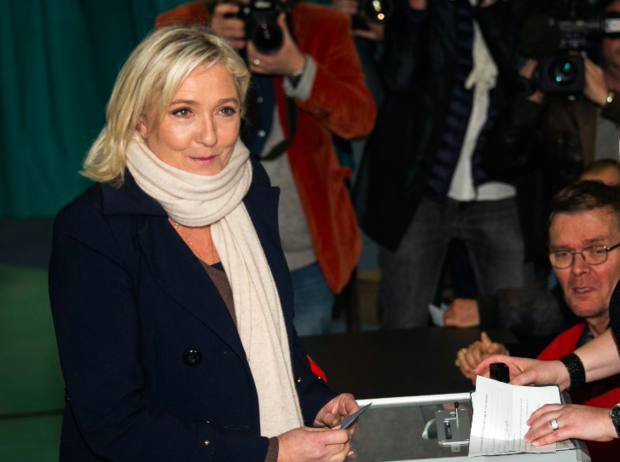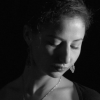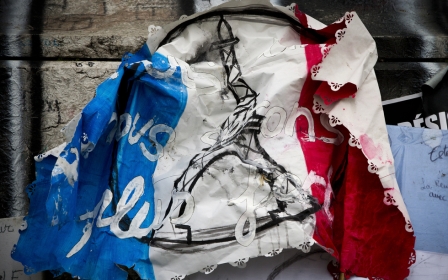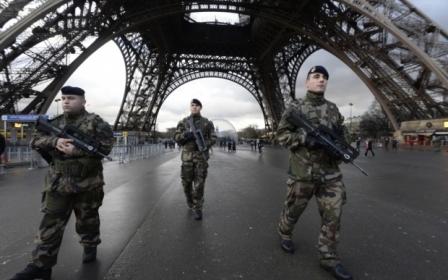France: What about facing our malaise?

A young woman, blond hair, green eyes underlined with eyeliner, perfectly smooth skin, sits behind the checkout at the supermarket. She is visibly annoyed.
A woman, brown skin worn out by time, dark circled tired eyes, her head covered with a blue veil, is counting her coins. She has amassed a treasure made up of five cent coins in her pocket to buy a bottle of pineapple juice. "Don't you have a euro coin instead of these cents?" says the young cashier with disdain. The customer responds with a subtle shake of the head from left to right and a shy smile. The cashier takes her treasure of coins and throws it into the box. Behind, everyone waits in silence for their turn.
A young woman in a black abaya enters the bus with a stroller. Eyes turn toward her, with a spark of accusation ... As if her outfit was an affront. She doesn't dare look back at them. She turns her gaze to the child in the stroller. Eventually she will sit and get lost in the urban landscape that scrolls through the window. She has learned to ignore the disapproving looks. They are already late. They will get off at the next stop and quickly forget her ... until the next young veiled woman enters the bus, causing them a renewed feeling of unease.
On the train, the car is quiet. Everyone is busy, reading the newspapers, watching the news on their cell phones, answering a newly arrived SMS message. A child of four years who can no longer sit quietly decides to walk in the alley and meet the passengers of the car. The child smiles at each passenger and receives smiles in return. He stops next to a woman with grey hair coloured in red and thick glasses on her eyes. She refuses to look back at him. He just stands there, until she makes him understand with a sudden gesture that he should leave. The child runs to his mother sitting at the front of the car. I hear the woman with grey hair coloured muttering: "It's a little wog!"
The scenes are inscribed in my memory. There are so many other scenes I could write. There are so many other scenes I wrote on a piece of paper before throwing them away. What for? To talk about them? I already feel that these questions are tiring everyone.
And yet, I should keep them because they document a sad part of our society: the symbolic violence exerted against a minority. A violence that I myself ended up ignoring to continue living in France. Watching this violence so closely, feeling it so strongly, ended up hurting me. I convinced myself. This violence was not directed toward me. But toward them, those who bear the stigmas of "otherness" that one should better get rid of if we want to live at peace in this society.
You can't get rid of all the stigmas though – it's hard to change your skin colour – but many prefer to hide the hideable stigmas by fully adopting the manners of the country, as the assimilationist policies that prevail in France require from us.
Her name is still Khadija but she wears tight jeans and drinks alcohol. Those who resist this liberating trend can go to hell. Those who recreated another "other" self with the fragments of culture their parents managed to pass down to them can disappear.
And tell them to stop waving the flag of the country of their parents. This Algerian flag, we do not want to see it waved in France. Algeria was France. But France has never been Algeria. Tell them - if not, the electorate of the far right National Front party that grew first out of the support for those who never forgave Algerians for having kicked them out, will grow. And they have plenty of arguments.
The French colonised Algeria and the Algerians today are colonising France. Extend it to the Arabs and Muslims and the danger is there. It will be scary. They have the geopolitics on their side.
Today, the National Front party is leading in the first round of regional elections. A result that I received yesterday with detachment, as if to protect myself. And then this morning, I had a hangover. Yet the results were very predictable. Suffice to observe closely our society. And I had spent loads of time doing just that. After all, maybe France would be better off without Arabs / Muslims.
France would be at peace at last? No, France would become a racialised country that 50 years later would prove to the world that it never knew how to deal with its embarrassing colonial legacy. Come on, we constantly talk about France's colonial legacy. Look at the production of documentary films and TV broadcasts during the 50th anniversary celebrating the end of the Algerian war.
They have released plenty of documentaries on French TV channels - France 2, France 5, Arte. Yes, maybe, but it was clearly not sufficient, since we remain obsessed with the same questions. The Arabs, Islam, the veil, integration ... And stop being obsessed with Algeria.
France did not colonise only Algeria, it also colonised Cameroon, Mali, Morocco, Tunisia. True, yet the challenge lay in Algeria, which were, after all departments of France. At the time, France had long sought to integrate a country without a people.
Today, the challenge is to integrate a people without territory. These people, whether the National Front likes them or not, are French. They are French - and Algerian, Malian, Cameroonian. Many would prefer them to be French and American. But we do not remake history.
It is time that France accepts that it is multiple and that this is the fruit of colonial history.
- Dorothee Myriam Kellou is a journalist and filmmaker based in Paris. This article was translated from French.
The views expressed in this article belong to the author and do not necessarily reflect the editorial policy of Middle East Eye.
Photo: French far-right National Front (FN) party president Marine Le Pen casting her vote (AFP).
New MEE newsletter: Jerusalem Dispatch
Sign up to get the latest insights and analysis on Israel-Palestine, alongside Turkey Unpacked and other MEE newsletters
Middle East Eye delivers independent and unrivalled coverage and analysis of the Middle East, North Africa and beyond. To learn more about republishing this content and the associated fees, please fill out this form. More about MEE can be found here.





